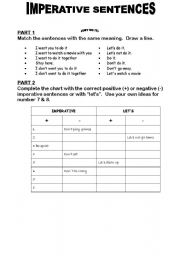
|
Imperative Sentences - positive & necagitve & Let´┐Żs
Step by step practice with the imperative forms. It starts with a matching activity focussing on comprehension, followed by a gap fill activity focussing on form and then finally, a practice activity where students must look at a funny picture and decide what imperative they or someone in the picture might say in the context of the situation portr...
Level: elementary
Age: 10-17
Type: worksheet
Downloads: 8
|
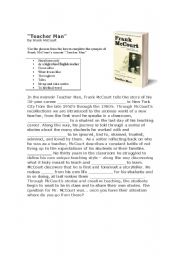
|
Introduction actiities to Penguin Reader: TEACHER MAN by Frank McCourt
These are some introductory in class activities to generate interest and encouragement in reading the Penguin graded reader: Teacher Man by Frank McCourt. The listening can be easily downloaded from the link provided in the worksheet. The listening focuses on an excerpt of Frank McCourt reading from his book where he talks about his rather humoro...
Level: intermediate
Age: 14-17
Type: others
Downloads: 11
|
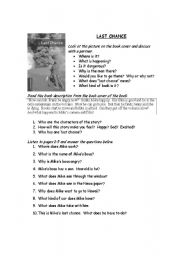
|
Last chance
This is an introductory activity to the book (oxford bookworm)last chance intended to help students into reading of the book themselves. It includes some conversation and listening activity for the first chapter of the book.
Level: elementary
Age: 11-17
Type: others
Downloads: 0
|
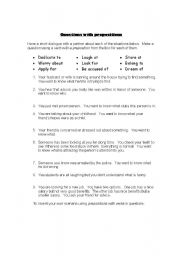
|
Making questions using verbs with prepositions
Have students work with a partner to act out 10 brief scenarios where an interrogative is necessary. Students choose from a list of verbs with prepositions to complete the task.
Level: intermediate
Age: 14-17
Type: worksheet
Downloads: 6
|
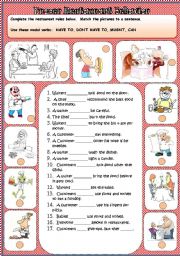
|
Modal Verbs for Restaurant Rules
Complete the sentence with an appropriate modal: HAVE TO, DONT HAVE TO, MUSTN´┐ŻT, CAN. Then match the pictures to one of the sentences.
Level: elementary
Age: 9-12
Type: worksheet
Downloads: 170
|
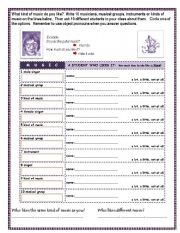
|
Object pronouns - What kind of music do you like?
Students use their knowledge of music related vocabulary, object pronouns (singular, plural, masculine, feminine, neutral) and degrees of liking to talk to their classmates about their musical tastes. Prepare the activity by having students fill in the MUSIC column with various kinds of music that they know of. Then students can ask their classma...
Level: elementary
Age: 10-17
Type: activity-card
Downloads: 25
|
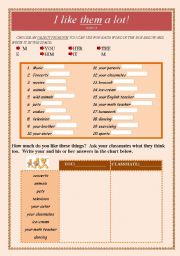
|
Object pronouns with the verb LIKE
Students first write the corresponding object pronoun in the blanks. Then paractice speaking by asking a partner if they like the items on the list, and noting down the response. The list of items is different for Student A and Student B. This could be followed up by asking students to report their findings to the class and thus getting speaking...
Level: elementary
Age: 10-17
Type: activity-card
Downloads: 6
|
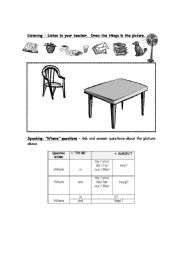
|
Picture dictation and preposition practice.
Students have to draw items on a picture according to the teacher´┐Żs dication. As a follow-up students can ask and answer questions about the picture or prepare their own picture dictation. The second page highlights the differences between "in" and "at" prepositions of location.
Level: elementary
Age: 7-17
Type: worksheet
Downloads: 6
|
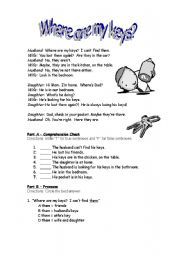
|
prepositions of location
prepositions of location: dialogue, comprehension questions, learn by drawing
Level: elementary
Age: 14-17
Type: grammar-guide
Downloads: 2
|
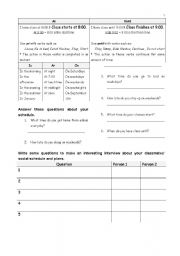
|
prepositions of time and other time expressions
prepositions of time, and time expressions, simple past tense. Contains explanation, controlled practice and guided speaking activity
Level: intermediate
Age: 12-17
Type: grammar-guide
Downloads: 9
|